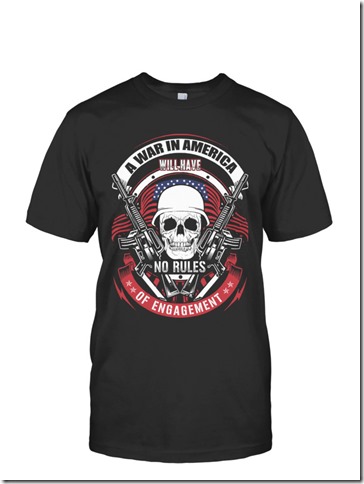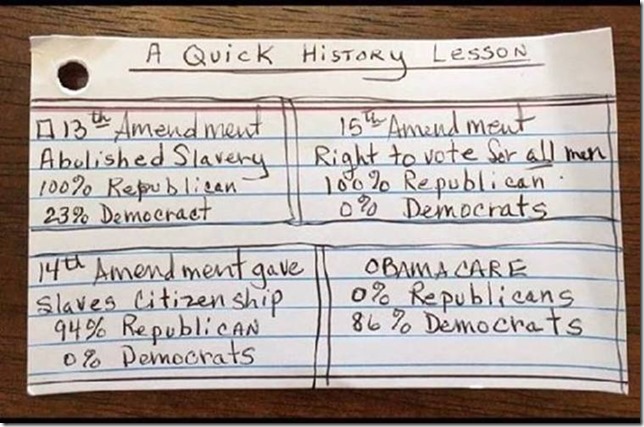Via a comment by Paul Koning we have this commentary in the Wall Street Journal:
Doctor to Patient: Do You Have a Gun?
I cannot understand how my asking this question will help.
From a public-health standpoint, adding this question to the medical history must seem logical to policy gurus far removed from the trenches of primary care. According to the American Foundation for Suicide Prevention, 60% of the 30,000 Americans who take their own lives every year do so with a firearm. Ninety die every day from shootings—60 are suicide, 30 are murders.
Yet as horrified as I am by these losses, I cannot understand how my asking this question will help. If a patient’s answer is “Yes,” then what I am to say?
Of course, the platitudes: Guns can be a danger around the home, especially one with children. Make sure you use gunlocks or a special safe. Everyone knows this; it’s akin to telling patients that smoking is hazardous to one’s health. And now that my patient has admitted that he owns a firearm, this fact is duly recorded into the—secure, of course!—electronic medical record.
If my patient suffers from mental illness or substance abuse but is not, in my estimation, a danger to himself or others, then what? Report the patient to someone, some agency? Who might that be? Will my patient be harmed more than helped? What will it do to my ongoing relationship with my patient?
The obvious take-away from the article is that the suggestion that doctors ask patients if they own guns was not well thought out.
As Paul points out in his comment the data is required to go into an electronic records system which is susceptible to hacking (ask the DNC if you doubt me).
Another plausible point, as Paul pointed out in his email to me, is it is a “push for doctors asking about guns to be an attempt to spread hoplophobic disinformation”.
And as Paul hinted in his email one can extrapolate even further to see how these electronic records could be use to build databases of gun owners. Sure, the records are supposed to be private from government snooping except under certain conditions:
The federal Health Insurance Portability and Accountability Act (HIPAA) states that protected health information may be disclosed if it “is necessary to prevent or lessen a serious and imminent threat to the health or safety of a person or the public and . . . is to a person or persons reasonably able to prevent or lessen the threat including the target of the threat.”
But we have laws in existence, right now, which require medical personal report people with, or had, mental health issues to the government so they can be prevented from purchasing guns. How much of a stretch is it to imagine a one or two line amendment to HIPAA which requires the reporting of self reporting gun owners?
And what does the government care about following original intent of the law? Census data has been abused by the governments throughout history:
The Civil War
Along with the benefits of census information for war planning, the census can be used for methods of destruction as a war tactic. General Sherman used census data to locate targets during the famed Civil War March though Georgia.
World War II and Japanese Internment
A specific example of the privacy risks of the US census can also be found in the 1940s. During World War II, Japanese-American citizens were rounded up and sent to internment camps. The Census Bureau might not have necessarily given out individual Japanese-American names or numbers, but the Bureau did work with US War Department to offer aggregated data about certain localities. Although there is still a lack of consensus concerning specific conclusions, the Census Bureau has issued a formal apology and now reports that the Bureau did not protect Japanese-Americans.
[It has been admitted the census bureau did give detailed info to the Secret Service.—Joe]
It has been recorded that even before the Japanese attack on Pearl Harbor, President Franklin Delano Roosevelt ordered the Census Bureau to collect information on “American-born and foreign-born Japanese” from the Census data lists. Information was gathered from the 1930 and 1940 censuses on all Japanese-Americans and then given to the FBI and top military officials. These sources point directly to the census information as one of the reasons that led to the internment of almost 110,000 Japanese-Americans on the West Coast, two-thirds of whom were U.S. citizens.
United Kingdom
A recent example of abuse from abroad can be found in the United Kingdom. It recently has reached the public view that compulsory transfers were considered in Northern Ireland in 1972. A UK government top-secret memo has surfaced describing a plan to relocate Irish Catholics. The plan was written with census data. Although never implemented, the use of census data for non-statistical purposes has caused great concern in Europe.
Germany
Germany has a contrasting history in census reporting. The most extreme example of census abuse is Hitler’s use of the census to track minorities for extermination during the NAZI regime.
Germany not only used the census data (and gun registration data) of their own country but that of countries which they conquered for evil purposes. My general rule is that if the data exists then it will be abused by a government. Carefully consider the type and persistence of data you disclose to anyone.
Like this:
Like Loading...


